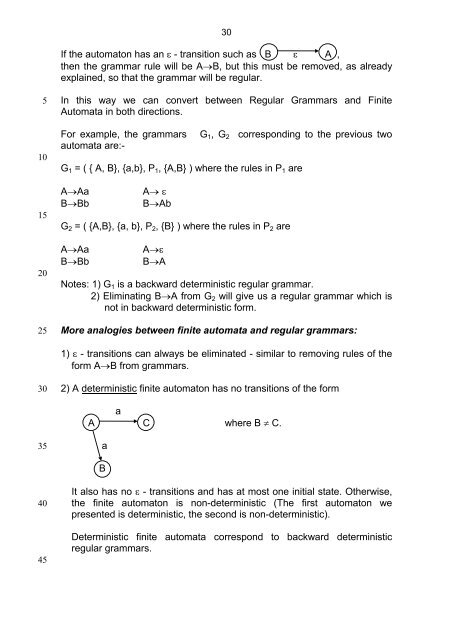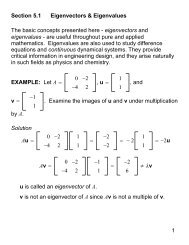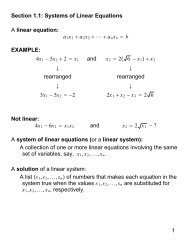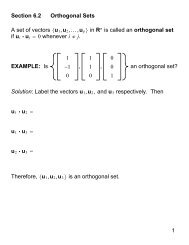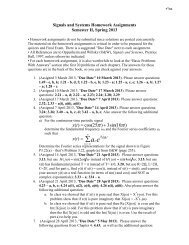Course Notes on Formal Languages and Compilers
Course Notes on Formal Languages and Compilers
Course Notes on Formal Languages and Compilers
Create successful ePaper yourself
Turn your PDF publications into a flip-book with our unique Google optimized e-Paper software.
30<br />
If the automat<strong>on</strong> has an ε - transiti<strong>on</strong> such as B ε A ,<br />
then the grammar rule will be A→B, but this must be removed, as already<br />
explained, so that the grammar will be regular.<br />
5<br />
10<br />
15<br />
20<br />
25<br />
In this way we can c<strong>on</strong>vert between Regular Grammars <strong>and</strong> Finite<br />
Automata in both directi<strong>on</strong>s.<br />
For example, the grammars<br />
automata are:-<br />
G 1 , G 2 corresp<strong>on</strong>ding to the previous two<br />
G 1 = ( { A, B}, {a,b}, P 1 , {A,B} ) where the rules in P 1 are<br />
A→Aa<br />
B→Bb<br />
A→ ε<br />
B→Ab<br />
G 2 = ( {A,B}, {a, b}, P 2 , {B} ) where the rules in P 2 are<br />
A→Aa<br />
B→Bb<br />
A→ε<br />
B→A<br />
<str<strong>on</strong>g>Notes</str<strong>on</strong>g>: 1) G 1 is a backward deterministic regular grammar.<br />
2) Eliminating B→A from G 2 will give us a regular grammar which is<br />
not in backward deterministic form.<br />
More analogies between finite automata <strong>and</strong> regular grammars:<br />
1) ε - transiti<strong>on</strong>s can always be eliminated - similar to removing rules of the<br />
form A→B from grammars.<br />
30<br />
2) A deterministic finite automat<strong>on</strong> has no transiti<strong>on</strong>s of the form<br />
a<br />
A C where B ≠ C.<br />
35<br />
a<br />
B<br />
40<br />
45<br />
It also has no ε - transiti<strong>on</strong>s <strong>and</strong> has at most <strong>on</strong>e initial state. Otherwise,<br />
the finite automat<strong>on</strong> is n<strong>on</strong>-deterministic (The first automat<strong>on</strong> we<br />
presented is deterministic, the sec<strong>on</strong>d is n<strong>on</strong>-deterministic).<br />
Deterministic finite automata corresp<strong>on</strong>d to backward deterministic<br />
regular grammars.


